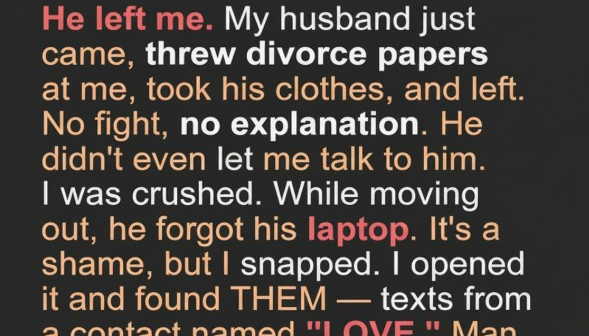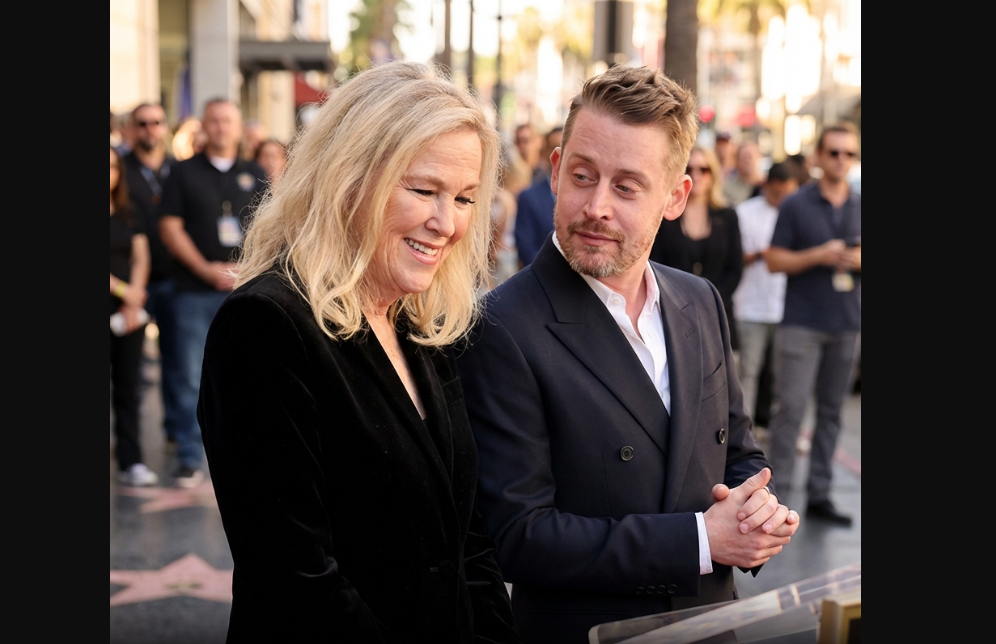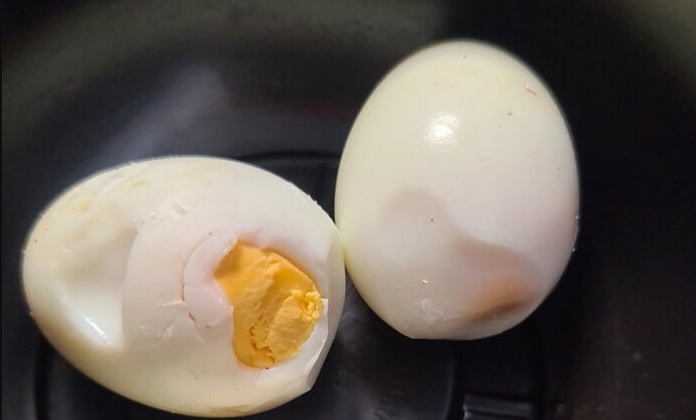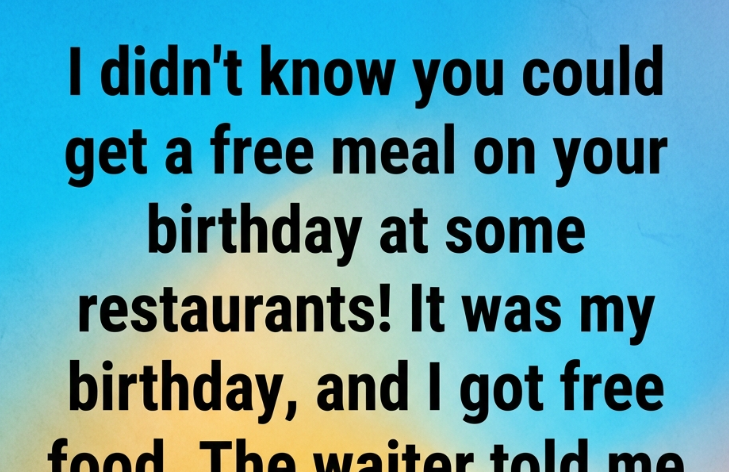He walked away from our marriage without giving me any sign beforehand. One ordinary afternoon, my husband returned home from work, set a stack of divorce papers on the kitchen table, collected a small suitcase with his essential clothes, and stepped out through the front door forever. No raised voices preceded that moment, no long conversation, not even a brief pause that would have allowed me to ask what went wrong. I stood frozen in the hallway, my chest tight with disbelief and sorrow, unable to grasp how a perfectly normal day had collapsed into the ruin of everything we had built together.
As he finished gathering the final items from our bedroom, I noticed his silver laptop still resting on the dresser. Deep down I understood that opening it crossed a line, yet the raw ache of abandonment overpowered every sensible thought. I lifted the screen, entered the password we had shared for years, and discovered an entire folder labeled “LOVE.” Inside were hundreds of messages—long, tender paragraphs addressed to himself. My breath caught in my throat. One recent note mentioned meeting someone at the corner café that very week. Even though every instinct screamed that more pain waited there, something stronger pulled me toward that place. I deserved to know the full story.
I arrived early, chose a quiet table near the window, and wrapped my hands around a cup of tea I didn’t taste. When my husband walked in, my body tensed for the sight of another woman draped on his arm. Instead, he greeted a silver-haired lady who carried herself with calm assurance and warmth. She wore a simple cardigan and a gentle smile that reached her eyes. They sat together in a sunlit corner, speaking in low, caring tones. At the end of their hour, she stood and wrapped him in a brief, maternal hug—the kind that says “you are enough” without words. In that instant, every terrible picture I had painted in my mind dissolved.
The folder named “LOVE” held nothing scandalous. Those messages were letters his therapist had guided him to write during their sessions—letters of encouragement, forgiveness, and hope addressed from himself to himself. She had taught him to speak kindly to the man he saw in the mirror when life’s demands became too heavy to carry alone. For months he had attended appointments in secret, terrified that admitting his anxiety and exhaustion would make him appear weak in my eyes. Rather than burden me with fears he couldn’t yet name, he chose what he believed was the cleaner wound: a sudden ending.
Watching them from across the room rewrote every harsh conclusion I had reached. The man who left was not running toward someone else; he was running from the shame of not feeling strong enough to stay and fight for us while carrying his own darkness. His silence had never been indifference—it had been a misguided shield.
Days later, we met in the same living room where the papers had first appeared. This time the air felt lighter, almost fragile with hope. He spoke first, voice cracking, and told me how deeply sorry he was for the cruelty of his exit. He explained that asking for help had felt impossible when he could barely admit to himself how lost he had become. I reached for his hand and told him I was sorry too—for letting fear turn me into a detective instead of a partner, for assuming betrayal instead of offering safety. Tears fell from both of us, washing away weeks of misunderstanding.
Healing required time, professional guidance, and countless honest conversations that sometimes left us drained. We learned to check in with each other before assumptions took root. We discovered that vulnerability, when shared, multiplies strength instead of dividing it. Slowly, patiently, we rebuilt the foundation of our home on truth rather than silence.
Today, that laptop sits openly on our desk. The folder still exists, but now it grows with new letters—some he writes to himself, some I write to him, and some we write together. What once felt like the end of love turned out to be the beginning of a deeper, braver version of it. Sometimes the most painful moments arrive not to destroy what matters most, but to clear space for something authentic and unbreakable to grow in its place.






